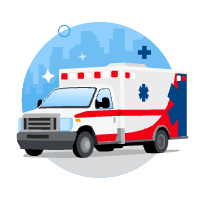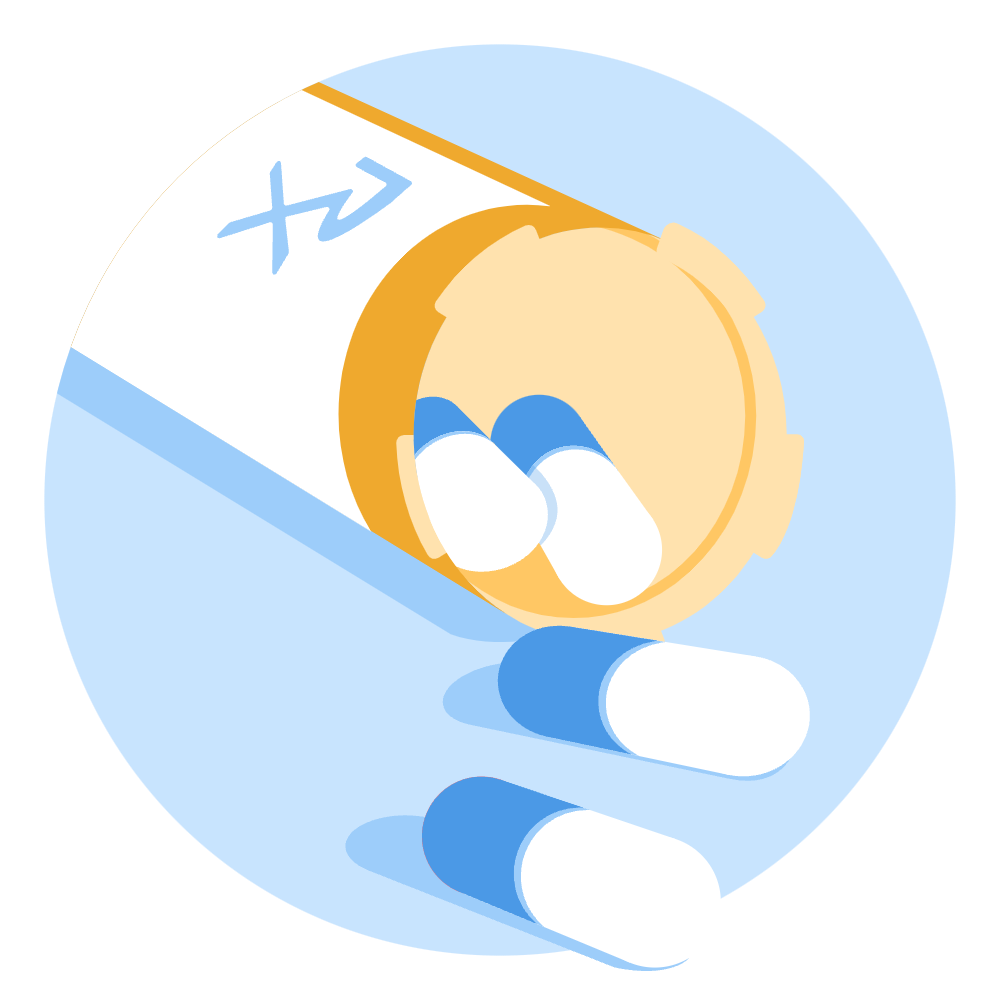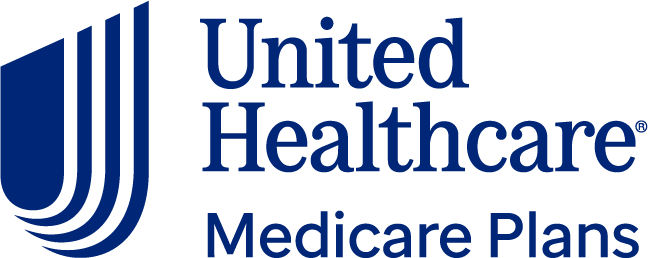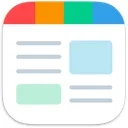What Is Medicare, and How Does It Work?
Medicare can help cover rising health care costs as you age. But it’s not one size fits all.

Many, or all, of the products featured on this page are from our advertising partners who compensate us when you take certain actions on our website or click to take an action on their website. However, this does not influence our evaluations. Our opinions are our own. Here is a list of our partners and here's how we make money.
Medicare is the federal government health insurance program for Americans age 65 and older and younger people living with certain illnesses or disabilities.
Medicare helps cover hospital bills, doctor visits and more, but it doesn’t pay for everything. Medicare coverage isn’t completely free. Certain parts are free for most people, while other parts charge a monthly premium.
Here’s what you should know about Medicare coverage and how it works.

What is Medicare?
Medicare can cover inpatient care, outpatient care and prescription drugs. There are four parts of Medicare — Part A, Part B, Part C and Part D — and each letter corresponds to a different type of coverage.
Parts of Medicare




There’s also supplemental insurance called Medigap, or Medicare Supplement Insurance. Medigap plans can be added to Original Medicare (Parts A and B) to fill “gaps” in coverage. These plans help pay for out-of-pocket costs since Original Medicare doesn’t have an annual cap.
Medicare eligibility
You’re eligible for Medicare if:
You’re 65 or older and a U.S. citizen or permanent resident.
You’re younger and living with a qualifying disability or condition, such as end-stage renal disease (ESRD) or amyotrophic lateral sclerosis, also called ALS or Lou Gehrig’s disease.
People who receive Social Security Disability Insurance (SSDI) usually become eligible for Medicare after a two-year waiting period. Those with ESRD (permanent kidney failure) are enrolled based on specific kidney and dialysis requirements, and those with ALS are eligible the month disability benefits begin.
How does Medicare work?
Original Medicare includes Part A and Part B and is managed by the federal government. You can see any doctor that accepts Medicare, and few services require preauthorization.
Medicare Advantage (Part C) is an alternative to Original Medicare offered by private insurers. You usually have to see providers in your network for the most affordable care, and you may need a referral to see a specialist.
You can have Original Medicare or Medicare Advantage, but not both. You also have the following coverage options:
Prescription drug coverage (Part D) can be purchased separately with Original Medicare and is usually included in Medicare Advantage plans.
Medigap can be added to Original Medicare but not to Medicare Advantage.
Shopping for Medicare plans? We have you covered.

4.1
CMS Star Rating
from UnitedHealthcare

3.61
CMS Star Rating
What is Medicare Part A?
Medicare Part A covers inpatient care in a hospital or skilled nursing facility, although not custodial or long-term care. Part A also helps pay for hospice care and some home health care.
You don’t pay a Part A premium if you or your spouse worked and paid Medicare taxes for at least 10 years. If you don’t qualify for premium-free Part A, you’ll pay up to $565 per month in 2026.
Medicare Part A premium and out-of-pocket costs:
Premium: $0 for most people.
Deductible: $1,736 in 2026.
Coinsurance for inpatient hospital care: $0 for the first 60 days (once you've paid your Part A deductible), $434 per day in 2026 for the 61st through 90th day of hospitalization, and more after that.
Out-of-pocket limit: None, unless you have Medigap.
What is Medicare Part B?
Medicare Part B covers doctor visits and other medically necessary services and supplies. That includes preventive services or health care to prevent illness, as well as ambulance services, durable medical equipment, mental health coverage and a few types of outpatient prescription drugs.
There could be a permanent penalty if you sign up late for Part B. Also, while there’s a standard Part B premium for most people, some have to pay more. Single people with adjusted gross incomes over $109,000 and married couples filing jointly with AGIs over $218,000 pay the income-related monthly adjustment amount (IRMAA).
Medicare Part B premium and out-of-pocket costs:
Premium: At least $202.90 per month in 2026.
Deductible: $283 in 2026.
Coinsurance: 20% coinsurance for Medicare-approved services.
Out-of-pocket limit: None, unless you have Medigap.
If you don’t sign up for Part B when you’re first eligible but then sign up later, you’ll pay a permanent penalty of 10% of the standard premium for each 12-month period that you delayed. You can avoid the penalty if you had health insurance through your job or your spouse’s or partner's job when you first became eligible. You must sign up within eight months of when that coverage ends.
What is Medicare Advantage (Medicare Part C)?
Medicare Advantage, also known as Medicare Part C, is a health plan offered by private insurance companies that provides the benefits of Part A and Part B and usually Part D (prescription drug coverage), as well as additional benefits like some dental and vision coverage.
Medicare Advantage plans are typically HMOs or PPOs. They provide coverage only in certain local areas, from certain networks of doctors and hospitals. They also generally require preauthorization and referrals.
Medicare Advantage premium and out-of-pocket costs:
Premium: Varies, but could be $0. You still have to pay your Part B premium.
Deductible: Varies by plan.
Copayment/Coinsurance: Varies by plan.
Out-of-pocket limit: As high as $9,250 in 2026.
What is Medicare Part D?
Medicare Part D helps cover the cost of prescription drugs, both generic and brand name. Plans are offered by private insurers and require a monthly premium. As with Part B, people with higher incomes pay more for Part D.
There's typically a penalty if you don't sign up when you're first eligible. The Part D late penalty is 1% of the national base beneficiary premium, which is $38.99 in 2026, multiplied by the number of months you're late enrolling after you go without creditable drug coverage for 63 days.
Medicare Part D premium and out-of-pocket costs:
Premium: Varies by plan. The average total monthly premium is $34.50 in 2026.
Deductible: Varies, but no more than $615 in 2026.
Copayment/Coinsurance: Varies by plan.
Out-of-pocket limit: $2,100 in 2026.
What is Medigap (Medicare Supplement Insurance)?
Medigap, or Medicare Supplement Insurance, is an additional health insurance policy you can buy from a private insurer to help pay your share of the costs not covered by Medicare Part A and Part B. This includes deductibles, coinsurance and some health care if you travel outside the U.S.
There are 10 types of Medigap plans with letter names available in most states. Plans are standardized, so Plan G in Texas offers the same base benefits as Plan G in Virginia, although prices may differ. You must have Medicare Part A and Part B to buy a Medigap policy, and you can't have Medicare Advantage and Medigap at the same time.
Medigap premium and out-of-pocket costs:
Premium: Varies, but can be around $40 to $200+, depending on location and plan type.
Deductible: Most plans cover part or all of your Part A deductible. Plans that cover your Part B deductible (Plan C and Plan F) aren’t available to new Medicare members. High-deductible plans have a deductible of $2,950 in 2026.
Copayment/Coinsurance: Covers many copayments and coinsurance, but exact coverage varies by plan.
Out-of-pocket limit: $8,000 in 2026 for Plan K and $4,000 in 2026 for Plan L. No limit for other plans.
Do you have to pay for Medicare?
Medicare does come with costs:
Part of Medicare | Monthly cost |
|---|---|
Part A (hospital insurance) | Typically $0. |
Part B (medical insurance) | Typically $202.90 in 2026. |
Part C (Medicare Advantage) | $14 per month, on average, in 2026. |
Part D (prescription drugs) | $34.50 per month, on average, in 2026. |
Medigap | Varies by plan. |
How do you enroll in Medicare?
If you’re already getting Social Security when you turn 65
You’ll be automatically enrolled in Medicare Part A and Part B.
To get Part D, you must sign up, unless you get a notice that you qualify for Extra Help. If you qualify, you’ll be automatically enrolled in a prescription drug plan unless you’ve already joined one.
If you’re not yet getting Social Security when you turn 65
You must sign up for Medicare through the Social Security Administration website or call Social Security at 800-772-1213.
Typically, you should do this during your initial enrollment period to avoid penalties.
If you want Medigap
Sign up during the six-month Medigap open enrollment period, which starts the month you are age 65 or older and enrolled in Part B. The private insurers who provide Medigap plans are required to take you if you sign up during that period. Otherwise, there is no guarantee they will sell you a Medigap plan, or they could charge you more for a plan.
If you want to change your coverage later, there's an annual Medicare open enrollment period from Oct. 15 to Dec. 7. (If you have Medicare Advantage, you can also make a change during Medicare Advantage open enrollment from Jan. 1 to March 31 each year, or within the first three months of getting Medicare.)
💬 From our Nerds: Can you keep your doctor on Medicare?
"If you have Medicare Part B, you can see any health care provider who accepts Medicare and who is accepting new Medicare patients. You’ll want to ask your doctor if they can take you as a new Medicare patient.
“If you join a Medicare Advantage plan, you’ll generally need to get care from doctors and hospitals that are in your plan’s network. Before signing up for a plan, ask your doctor if they’re in-network with that insurance.”

— Kate Ashford, lead writer covering Medicare
What doesn't Medicare cover?
Medicare doesn’t cover most dental care, hearing aids, eyeglasses, dentures, and overseas medical care, among other things. Medicare also doesn’t cover long-term care. (The federal health program Medicaid pays for long-term care, but is typically reserved for those with low income and little savings.)
Some common expenses that aren’t covered include:
Most dental care.
Most foot care, unless related to diabetes or medically necessary due to injury or disease.
Cosmetic surgery.
Massage therapy.
The right choices for you will depend on your circumstances. For guidance, reach out to your local State Health Insurance Assistance Program (SHIP), which you can locate at shiphelp.org.
Get details on Medicare coverage for: | ||
Medicare.gov is the official site for Medicare. You can browse the site, live chat with someone from Medicare or call 800-MEDICARE (800-633-4227, TTY 877-486-2048). You can also visit Medicare's help page to find local organizations that can help.
ON THIS PAGE
Compare Medigap plans
ON THIS PAGE







